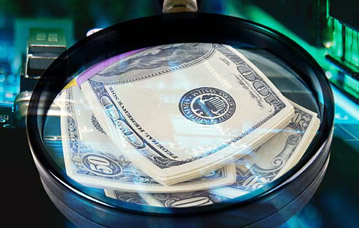
- Establish a background in general business and finance/accounting. You need a good working knowledge of financial statements and the accounting process. The real world is different than textbooks.
- Find opportunities to work on things that involve fraud. If you work at an auditing firm, make sure the partners know you’re interested in participating in fraud investigation. If you work at a corporation, get in touch with whoever handles investigations. Get any experience you can.
- After you have a strong foundation, look for job opportunities that advance you toward your ideal fraud investigation position. If you’re in accounting, don’t take a dead-end accounting job that gets you no closer to fraud investigations. Look for the job that has the potential to move you into fraud investigations.
The most important thing is to start getting experience. Any experience.
There are colleges offering courses of study in forensic accounting. If you’re local to those colleges, it can’t hurt to take those classes. If you’re not local, don’t worry about it. You can get the best training in forensic accounting and fraud investigation from professional organizations that offer continuing education courses.
Just be careful… some of the organizations offering courses are not well-respected, and so their courses and “certifications” don’t mean much in the field. The preparation course for the Certified Fraud Examiner exam via the ACFE is an excellent self-study course. If you prefer a live course, I recommend NACVA’s Foundations in Financial Forensics workshop. (I helped write this course, and also teach part of the course in rotation with other instructors.)
When it comes to certifications, you should get one of the two major certifications: Certified Fraud Examiner (CFE) from the ACFE or Certified in Financial Forensics (CFF) from the AICPA. You do not need both, as they are largely duplicative of each other. NACVA’s Master Analyst in Financial Forensics is also a quality certification. Any other certifications that you could get provide you little to no benefit, so do not waste your time or money.
It also goes without saying that you should become a CPA if you qualify to sit for the exam. While a CPA license is not required to be a fraud investigator or forensic accountant, it is still a valuable certification that lets everyone know you have a strong base of knowledge about accounting. Many jobs in the field of forensic accounting will require (or prefer) a CPA, so this will open up job opportunities for you.
What about books that can help you learn more about fraud investigation and forensic accounting? If you’re looking for a textbook, I recommend Fraud Examination by Steve Albrecht or Principles of Fraud Examination by Joe Wells. If you prefer a more practical book, I recommend my book Expert Fraud Investigation, which walks you through the basics of how to conduct a fraud investigation. A more in-depth book about the process of investigating fraud is Financial Forensics Body of Knowledge by Darrell Dorrell. If you have never been a part of a fraud investigation, Darrell’s book can be a bit overwhelming, though.
And what about job hunting? Unfortunately, I’m really not up on what the job market looks like for forensic accountants. I am not sure what firms are looking for, how many openings they have (for either beginners or experienced professionals), or what can give you an edge there. This article gives you an idea of the path my career took, and this is the advice I gave to young professionals interested in forensic accounting.
Via RSSMix.com Mix ID 8246157 http://www.rssmix.com/
Comments
Post a Comment